Our child care programs, summer camp, and forest school are child-centered and inquiry based.
By Marjorie LePoidevin, Director Communications and Marketing
&
Christine Tyrrell, Coordinator Communications and Marketing
At Upper Canada Child Care, we believe teaching empathy to children is critical to building a strong sense of community. Without empathy, people struggle to relate to each other or think of another individual’s needs or interests, and so relationships suffer. Some people may think that the characteristics of kindness (empathy, compassion, care, generosity, understanding) are inherent to a person, present at birth or not. However, we know that kindness can be taught, through modeling, practice, and repetition. Upper Canada Child Care’s mission statement starts with “Building relationships is at the core of what we do.” Helping children find ways to build relationships and a sense of belonging to their community is central to our programs. Given the tools and opportunity to practice, children can lead the way to a more empathetic and caring society.
Our programs for younger children do a lot of exploration around feelings. Naming feelings, finding ways to express themselves and resolve conflicts is an important part of relating to and developing understanding of one another, which is the basis of empathy and compassion.
Another way we cultivate kindness at Upper Canada Child Care is providing opportunities to participate in acts of service, giving, or appreciation. Giving time to others, to community service, and to local causes, supports children in practicing empathy and compassion which in turn fosters a sense of unity and shared purpose. Whether it is participating in the local Terry Fox run, picking up trash in the school yard, or organizing a food drive, these meaningful acts build connection and community.
When individuals engage in acts of kindness, they create a shared purpose and a sense of togetherness that can transcend cultural and geographic boundaries. No matter the size of an initiative, it strengthens the social fabric that holds a community together and inspires others to join in, breaking down barriers and reducing isolation. Additionally, acts of service can also lead to personal growth and satisfaction, further enhancing commitment to community building. Community service initiatives not only benefit the community, but those serving as well.
We feel privileged to work in a field and an organization where children are valued as “competent capable of complex thinking, curious, and rich in potential”. (How Does Learning Happen? Ontario’s Pedagogy for the Early Years). In our experience, children are full of ideas, and energy. They want to be engaged in their learning and be given autonomy to make decisions. UCCC centres encourage children to initiate their own community service ideas, as we’ve written about before in this blog post.
Here are some other recent examples:
- Our David Suzuki PS location is having a food, socks, and mittens drive this season. Community Hub Supervisor Andrea Williams Vassell stated that the centre thought it would be a great way to support their community, especially with the holidays looming.
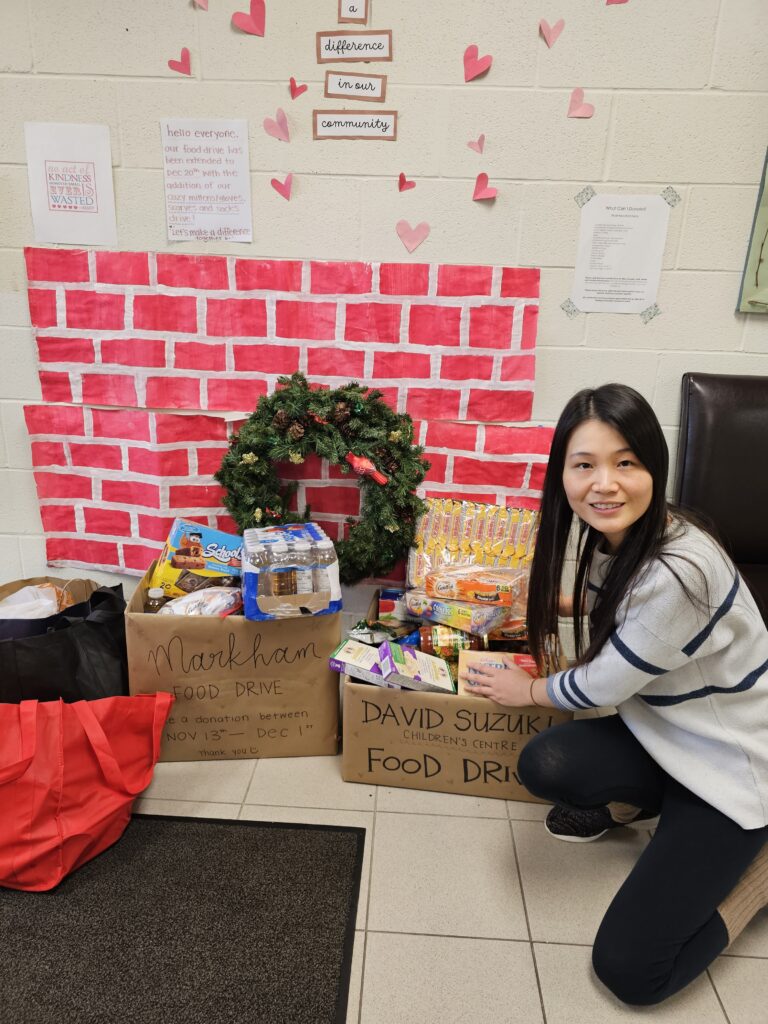
- At head office, we also collected food donations to deliver some much-needed assistance to local Markham families.
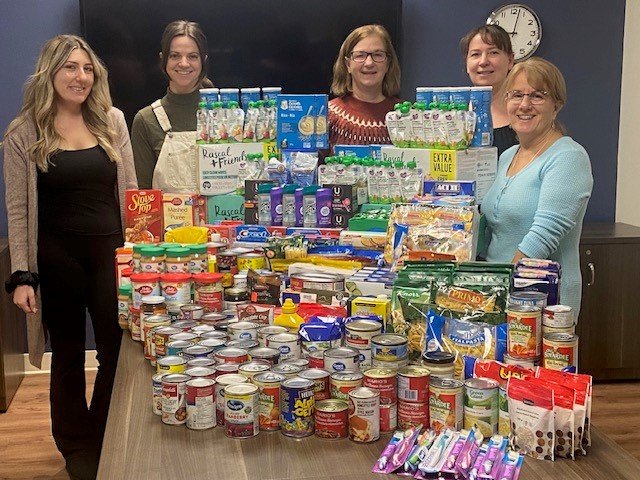
- Our Alliston and Barrie centres worked together to collect food donations. Community Hub Supervisor Kathryn Srenk shared that they raised an incredible 925 lbs of food for the Alliston and Barrie food banks: UCCC at Boyne River PS: 273 lbs, UCCC on Wellington Street: 211 lbs, UCCC at St. Cecilia CS: 123 lbs, UCCC at Willow Landing ES: 217 lbs, and UCCC School Age Office: 101 lbs

- As part of their efforts towards Truth and Reconciliation, Community Hub Supervisor Jackie Grant shared that the Before and After School Program at our Wendat Village PS location* held a fundraiser to support Water First, a Canadian Charity that trains and works with Indigenous peoples to help address water concerns in their communities and across Canada. Leading up to the event, the children drew and painted various artworks for an art auction. Throughout the week and the night of the event, families could purchase tickets to bid on a variety of donated items. The centre had an amazing show of support from their client families, raising $337 for Water First.
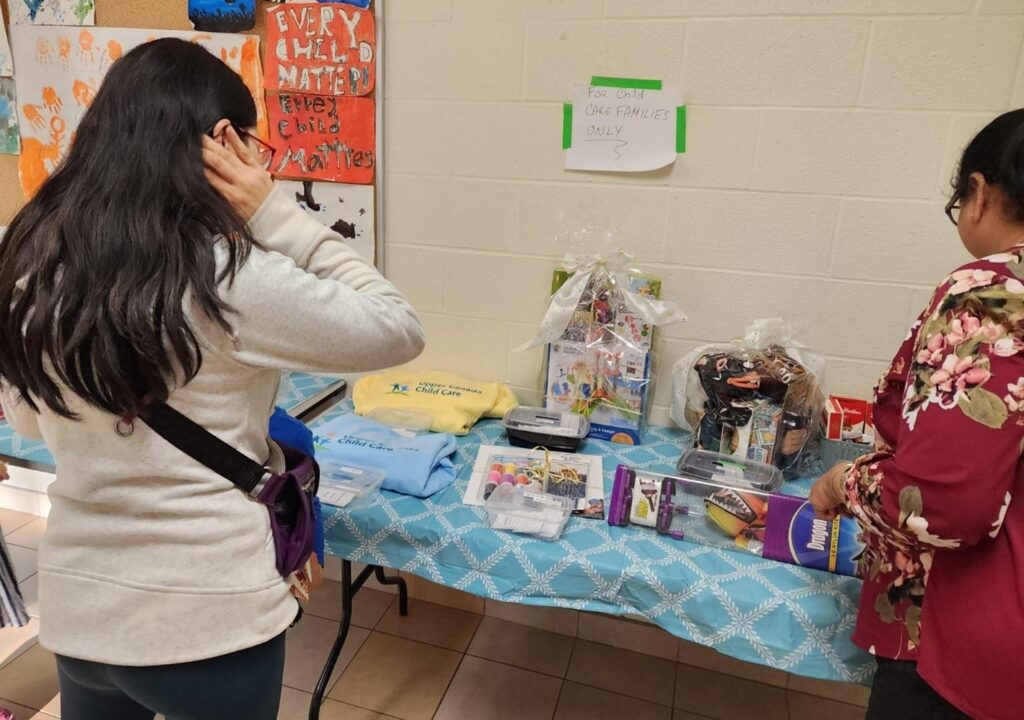
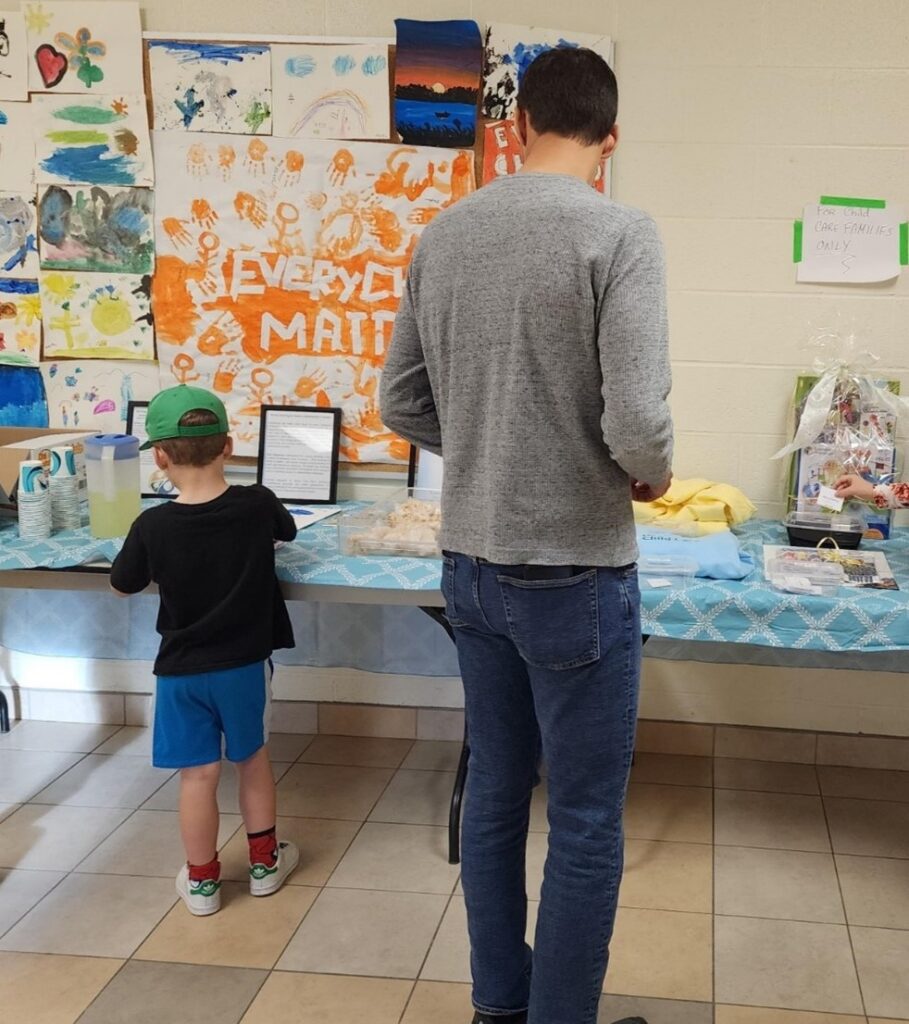
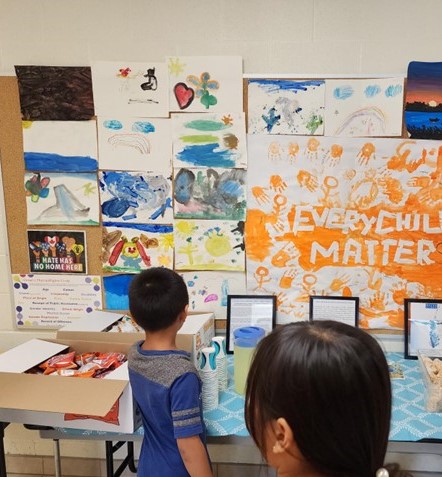
For further inspiration, you may want to check out this series on teaching empathy to children: Steve Hartman: Kindness 101 – CBS News. Just a warning, the stories are heart-warming, and you may want to have a tissue ready. The stories also talk about real people in difficult situations, and some may find it difficult to watch, but it is only through understanding what someone else is going through that we can we empathize. As one of the stories in this series illustrates: even when they themselves have not been shown empathy or compassion, children have a capacity for love that is surprising and inspiring.
While kindness can and should be practiced daily, the holiday season is a time when people like to focus on giving. It’s also a great time to explore with your children their potential to practice “the gift of giving” and exercise their empathy muscle.
You may already be practicing empathy with your family, but if not, we encourage you to invite your children to share their ideas about how to help others; ask them what they’d like to do, how they’d like to help, and then try to make a collective decision. The next step is to support children in putting their ideas into action. Bonus: these activities don’t have to cost money! You can find some more child-friendly ideas here.
Feeling empathy for others in need and then doing something about it = compassion.
We wish you the best for the season and in the new year to come!
*Wendat Village PS is located adjacent to a 16th century ancestral Aboriginal community known as the Wendat Mantle site. The site was discovered by subdivision developers and the community wanted the name of the school, which was built in 2011, to honour the Wendat people (read more here: Aboriginal name for Stouffville’s next school (yorkregion.com)